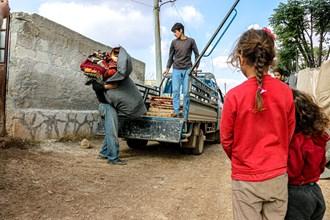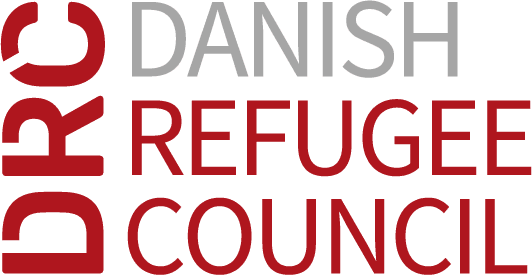

Filling Key Gaps in Emergency Response: Strengths and Challenges of Somali Diaspora
31 January 2024
DEMAC launches a new report on "Diaspora Humanitarian Engagement in Somalia".
Previous shocks and new crises: Increasing vulnerability in Somalia
Somalia has suffered from recurrent shocks and crises for the past decades, with climate disasters, conflict, and other intersecting drivers contributing to continuous humanitarian needs. The situation is heightened by two recent crises: the Gu rainy season floods in Beledweyne (Hiran region) during the spring 2023 and the increased conflict between the Somali government and Armed Groups and de facto Authorities (AGDAs) in Jubaland since August 2022. By June 6, at least 468,000 people in Somalia were affected by the floods, while the armed conflict has led to steep increase of civilian casualties and displacement.
A Real-Time Study from July to November 2023: Understanding Somali Diaspora’s Response
Somali diasporas play a critical role in responding to humanitarian emergencies across the country. This RTR is designed to shed light on the specific operational modalities employed by Somali diaspora organizations (DOs) and their strengths and challenges as humanitarian actors. A total of 86 Somali diaspora organizations with headquarters spanning 13 countries were mapped through diverse online search platforms and consultation with diaspora members and organizations. Further insights were obtained from qualitative interviews with 23 key informants including DO representatives, stakeholders, and local community representatives.
See below estimated Somali diaspora population by country

Strengths of Somali Diaspora Engagement:
- Commitment – The DOs showcased commitment to addressing humanitarian and development needs, through risk-taking, fundraising, and volunteering.
- Rapid response – The DOs demonstrate a robust capacity to swiftly mobilize resources and reach affected communities with the prompt delivery of essential relief, such as water trucking, emergency shelter, and food aid
- Effective fundraising - Utilizing their network, many DOs efficiently crowdsource funds to respond to humanitarian needs, exemplified by three DOs raising a total of USD 1.1 million in 2022.
- Skills transfer – Diaspora staff played a crucial role in securing formal funds through their grant writing and networking skills. Some DOs transitioned leadership from primarily diaspora members to mostly local Somalis.
- Local embeddedness - The DOs adeptly navigate complex dynamics, even in areas controlled by Non-State Armed Groups, leveraging crucial ties with local leaders in Somalia’s challenging context.
- Access to highly mobile populations - In contexts with significant displacement, Somali DOs showed unique skills in tracking IDP movements, complementing institutional humanitarian actors in complex mobility environments.
We believe without diaspora aid the country wouldn’t be where it is today. There are many things which this country lost after the civil war, and it was with the aid of the diaspora community that we were able to get things back. Sectors like education, health, development, emergency aid, and even technical skills are things we received from diaspora communities.
Challenges from lack of diverse funding
A major challenge emphasized by KIs was the lack of institutional funding DOs receive. Most Dos still rely exclusively on diaspora contributions, and the few Dos that receive support from institutional actors emphasized challenges in obtaining these funds. The ability to fundraise directly from the diaspora enables quick mobilization in response to specific needs but it does not usually allow for activities to be carried out at the scale or consistency that international donor funding would. This often limits the DOs’ ability to plan longer-term, sustainable humanitarian interventions, retain staff, or invest in organizational development initiatives.
The diaspora finds out our needs when we contact them. They are our brothers and relatives who lived here previously, and they know where we live and how we live and when we have problems. So, they are always aware and know of us. The diaspora has made a huge difference compared to other organizations such as NGOs and others.
Recommendations for diaspora organizations
Considering both the strengths and challenges faced by Somalia diaspora actors, the following recommendations are provided to leverage diaspora organizations' value as humanitarian responders while addressing barriers to their involvement and coordination in the humanitarian sector:
- Routinely document, publicize, and disseminate information about activities on DO websites and social media pages to ensure awareness and understanding of DO’s work to institutional actors, other diaspora, and local partners.
- Participate in existing diaspora-led coordination platforms and establish new platforms where needed (e.g., sector- or location-specific ones) to enhance dialogue, advocacy, and knowledge sharing between Somali DOs and to collectively strengthen DOs' participation in humanitarian response coordination meetings with IHAs and local actors.
- Explore further opportunities for pooling funds across regional or global diaspora networks to streamline fundraising and create financial opportunities to scale humanitarian activities.
- Collectively review processes and practices for beneficiary selection, to ensure that they are aligned with humanitarian principles and do not inadvertently exacerbate pre-existing vulnerabilities or cause harm. When good practices are identified, document, and share these with other DOs and communicate them to institutional humanitarian actors to counter negative perceptions. When relevant, collaborate within the diaspora and with local and institutional humanitarian actors to improve approaches for reaching those most in need.
Download the Full Report, Executive Summary and Snapshot
That could also interest you

Navigating Sudan’s crisis: Insights into Diaspora-Led Humanitarian Efforts
DEMAC releases new report on Sudanese Diaspora Response

Turkish and Syrian diaspora organizations' response to the earthquake
How Turkish and Syrian diaspora organizations worldwide provide a fast response to the earthquake

Diaspora Toolkit: Where can you find relevant humanitarian data and information?
A short hands-on pocket guide to support diaspora organizations in their humanitarian response.










